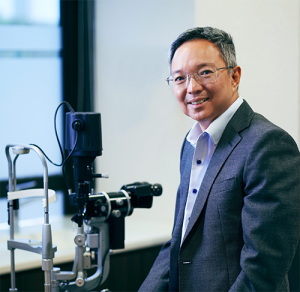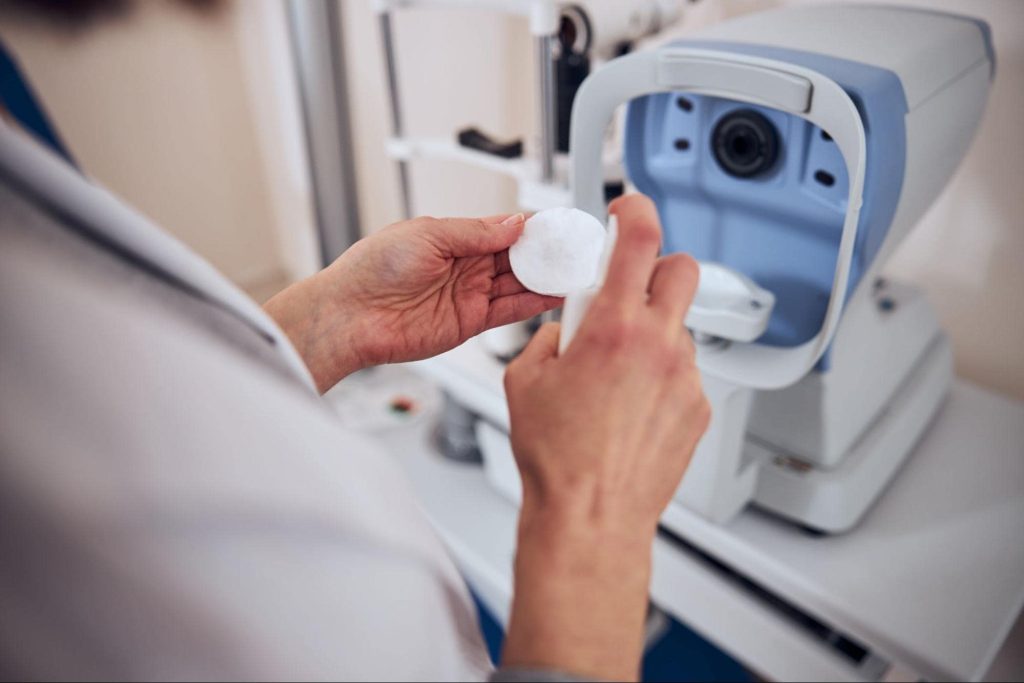When your vision is functioning normally, light will pass through your iris onto a clear lens in order to see what’s in front of you. After the light has focused onto your lens, your brain and eye will work hand-in-hand to process the sensory information and transform it into sight.
Cataracts develop when the lens of your eyes goes cloudy or blurry. As the cataract clouds over the lens, your eye can’t focus on the light properly, which leads to foggy vision or even vision loss. Symptoms of cataracts include frequent changes of spectacle power and glare in bright light.
Still unfamiliar with cataracts? In this blog, we’re here to give you all you need to know as well as when you should see a cataract specialist for treatment in Singapore.
What Are the Different Types of Cataracts?
1. Age-Related
As you age, there’s a possibility that a cataract can develop due to the natural changes and deterioration in the lens of your eyes. This is one of the most common types of cataracts and will typically begin to appear in your 40s or 50s.
2. Traumatic
This is due to serious eye injuries that could damage your lens. While there is a possibility that the cataract can form immediately after the injury, it is possible for a cataract to develop many years later after initial recovery. Should you experience vision loss or eye pain once your eye injury is treated, see an eye specialist right away for a consultation and treatment.
3. Radiation
Cataracts can also be formed when you’re exposed to certain types of radiation including ultraviolet (UV) rays from the sun and radiation from certain cancer treatments.
4. Paediatric
Paediatric cataracts are rare and can either be congenital or develop in your child during their early years. Cataracts in children are typically caused by genetics if they have a relative with a history of cataracts, or sometimes due to serious complications during pregnancy. They can also form because of an illness or similar reasons as cataracts formed in adulthood, such as exposure to radiation or eye injuries.
5. Secondary
Secondary cataracts occur after other medical conditions, such as diabetes, and taking steroid medications for autoimmune diseases. This can also develop when you’ve experienced an eye inflammation or iritis. Getting treatment by an eye specialist in Singapore can help resolve issues from the effects of secondary cataracts.
Who Are at Risk of Developing Cataracts?
Several factors can contribute to increasing your risk of developing cataracts, such as…
- Those in their 40s and older
- Diabetics
- Smokers
- Individuals with a family history of cataracts
- People who are constantly exposed to UV rays
- Those who have had a serious eye injury
If you have any of these risk factors present and are concerned about developing cataracts, a cataract specialist will be able to advise you on proactive steps to take as well as symptoms to look out for.
When Should You See a Cataract Specialist in Singapore?
When you experience the first sign of a cataract (which is foggy vision) you should see an eye doctor right away, preferably one that specialises in cataracts. Those living with diabetes should also undergo regular diabetic eye screening to know if they are at risk of cataracts or other eye- and vision-related complications.
Some cases of cataracts can be mild, and treatment can be as straightforward as prescription glasses to help with your vision. However if the cataract has become more severe over time and you’re having a hard time carrying out your daily activities, you may be advised to undergo cataract surgery to have it removed.
Are you looking for a cataract specialist in Singapore? EyeWise Vision Clinic provides a range of eye health services and specialises in dealing with mild and complex cataract cases. Our cataract specialist can examine your eye’s condition and provide cataract treatment for severe cases. Book an appointment today for a consultation or to seek treatment options at our clinic.

Dr. Christopher Khng, specializes in Complex Cataract and Anterior Segment Reconstruction Surgery, in particular, Iris Reconstruction and surgery for Aniridia. His other areas of expertise include Complex Lens surgery, New Lens and Phacoemulsification technologies, Refractive surgery, Phakic IOLs (the Implantable Collamer Lens, ICL), and small-incision, topical anesthesia phacoemulsification cataract surgery. Dr. Khng is a member of the Singapore Medical Association (SMA), a Fellow of the American Academy of Ophthalmology, the American Society of Cataract and Refractive Surgery (ASCRS), and the European Society of Cataract and Refractive Surgery (ECSRS). He is registered with the Singapore Medical Council (SMC) in Singapore and with the General Medical Council (GMC) for practice in the United Kingdom.

